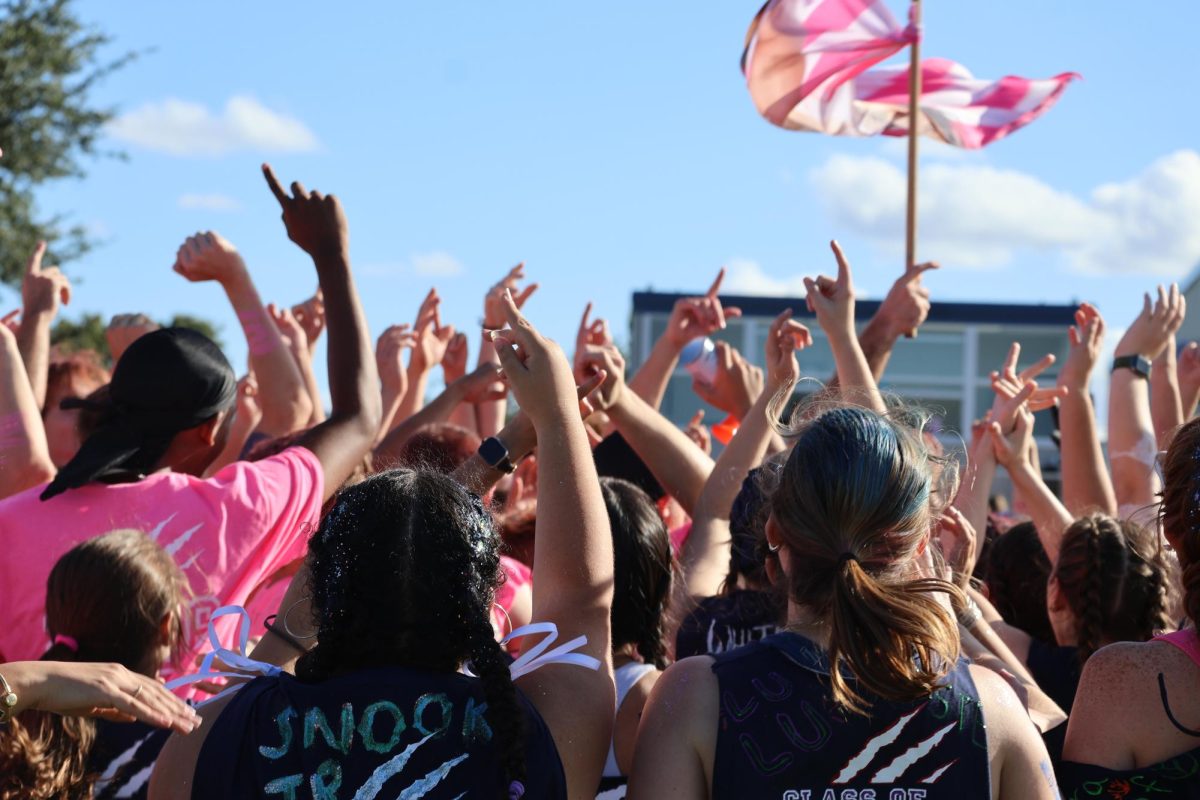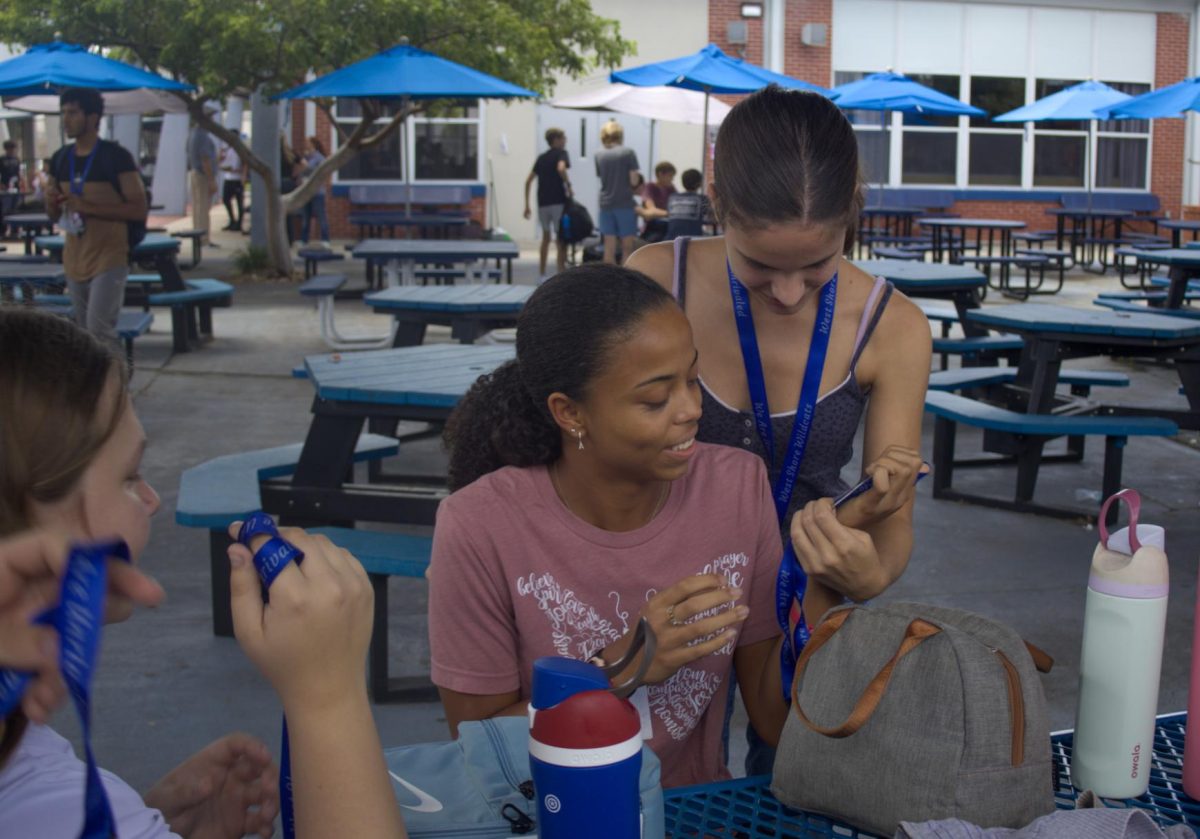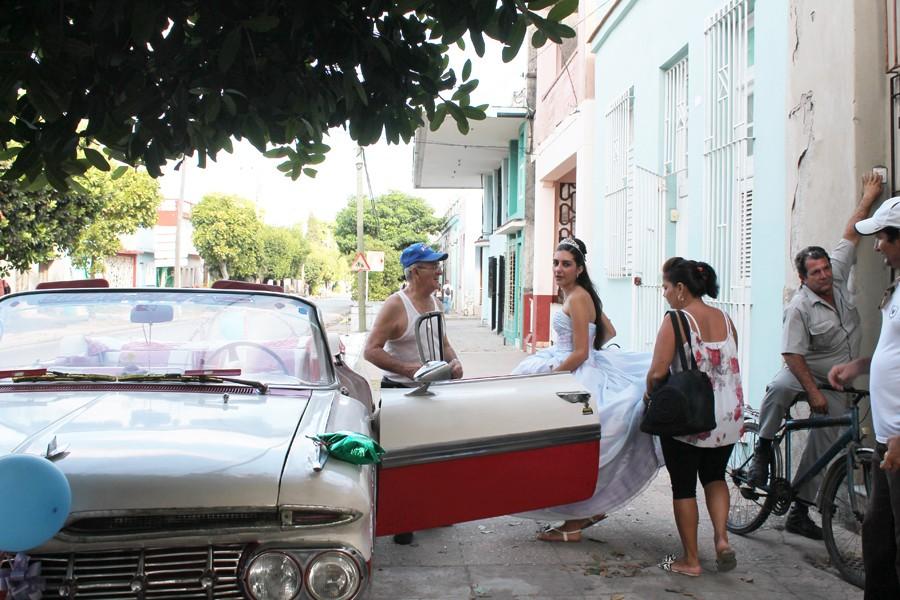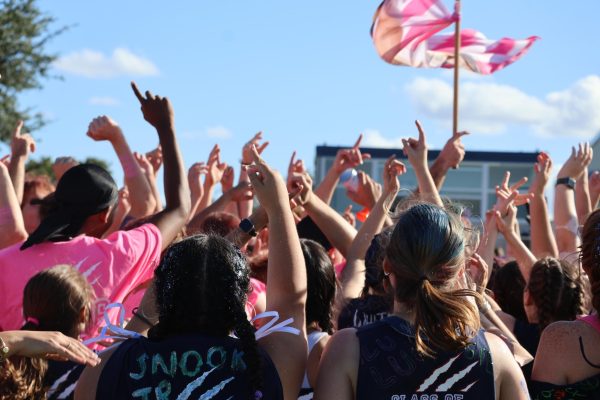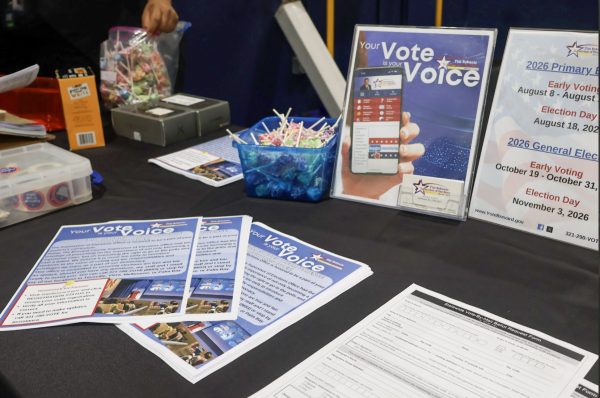Warming relations with Cuba raises hope of better conditions for residents
In Cuba for her Quinceañera last summer, sophomore Megan Mateosky prepares for her party.
On her many trips to Cuba, sophomore Megan Mateosky witnessed just how different life is on the island. Students in her aunt’s cramped classroom lack desks and air conditioning, and the content of their lessons is limited.
Megan also saw the effect of diseases — including dengue fever and cholera — on the island, along with an attempt to prevent their spread.
“People would inspect every two to three days and they would fumigate the houses and the roads, so you would have to stay outside for about an hour or two,” Megan said. “And then if you had any open water cups just lying around while they were doing the inspection you could get fined.”
With President Barack Obama’s recent announcement to increase diplomatic relations and expand communication and technology, conditions for those in the country might soon change.
West Shore alumna Rosalia Contreras, who now teaches in Spain and emigrated from Cuba when she was 2 years old, said she was overjoyed with the U.S. government’s new direction.
“I was getting out of a tutoring session I host in the afternoons here in Madrid when I saw text messages from friends about an announcement President Obama was making about U.S.-Cuba relations,” she said. “I sat down next to the escalator on my way into the metro and cried as I watched the announcement on live-stream. I knew things would eventually start changing, but I didn’t realize it would be so soon.”
History teacher Kirk Murphy said the change should have happened sooner.
“I’m not sure why it’s taken so long to make relations with Cuba,” Murphy said. “We’ve been dealing with communist countries for forever, so why not deal with the one closest to us?”
Eighth-grader Jacquelyn Mateosky said the U.S. has an obligation to be fair to all countries.
“We can’t think about it differently,” Jacquelyn said. “If we treat one country some way, we can’t just distance ourselves from another country. We have to be equal; that’s kind of how our country is.”
Those who have been to Cuba have unique perspectives about the country.
“It’s a whole lot different than America, and it’s nice to go there,” Megan said. “It’s kind of like going back in time a little bit because they haven’t had a lot of technology, like internet.”
During a recent trip to Cuba, Ana C. Rosal, mother of junior Ana Rosal, said she saw few cars, not much pavement and buckets being used for taking showers.
“Cuba has been repressed for 50- something years, and it’s pretty sad,” she said. “It’s a country that doesn’t have anything that we take for granted like food, clothes and your basic needs. It’s sad because a lot of people do not know what is going on over there.”
According to Human Rights Watch, the Cuban government continues to punish political dissent and instill fear in the public through the use of beatings, employment termination and threats of long-term imprisonment.
Kathleen Along, mother of senior Joe Along, who visited Cuba last April for a Fine and Performing Arts People to People tour, noticed a disparity.
“In our hotels there was ample milk for our coffee, but there was an island-wide shortage of milk for the Cuban people and their children,” Along said. “The restaurants had lobster on the menu, but the Cuban people can be jailed for fishing the Cuban coastal lobster for their own use. The hotel TVs gave choices of channels; the Cuban people are only permitted the four government-sanctioned stations in their homes.”
Math teacher Maria Hedrick’s grandmother once lived in Cuba.
“She left Cuba after 20 years of being with the communist government,” Hedrick said. “When she came out, she couldn’t come through the U.S. because the U.S. didn’t have relations with Cuba, so she went out through Venezuela, which is where my uncle was living at the time. So, she went to live with him before coming to the U.S. She said the first thing she ate was an apple — she had not seen an apple in 20 years since Castro took over.”
One thing is clear: Despite more than 50 years of isolation, new diplomatic relations mean changes in Cuba.
“I emailed my cousin immediately after watching the announcement and asked if she had heard the news,” Contreras said. “Her response was a simple one: ‘Maybe I’ll finally be able to visit you and spend time with you in your country.’ There was no talk of politics, of economic repercussions, of lifted embargoes. Just a hopeful declaration of being reunited after being kept separate for so long by failed policy.” c


![Sophomore Isabelle Gaudry walks through the metal detector, monitored by School Resource Officer Valerie Butler, on Aug. 13. “I think [the students have] been adjusting really well," Butler said. "We've had no issues, no snafus. Everything's been running smoothly, and we've been getting kids to class on time.”](https://westshoreroar.com/wp-content/uploads/2025/08/IMG_9979-1200x800.jpg)



















